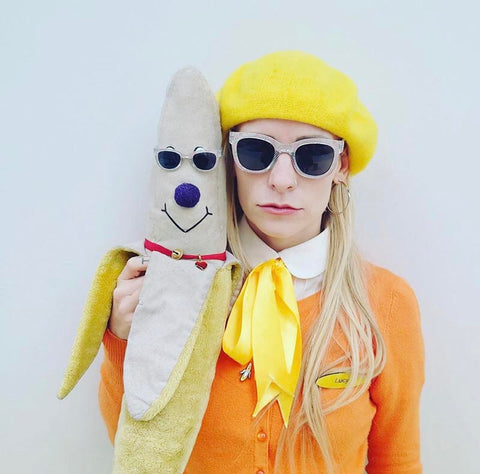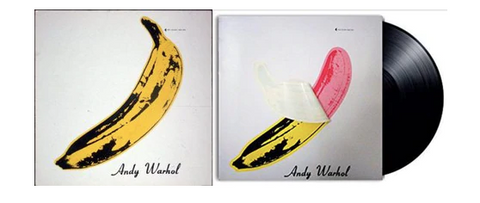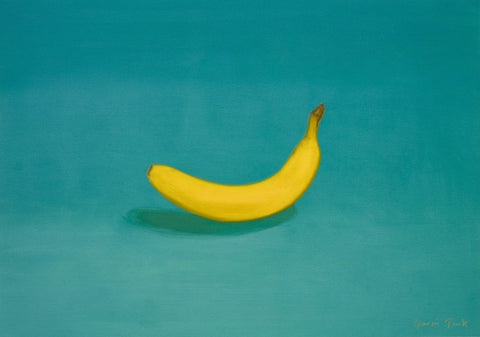Over the years, bananas have slipped into all areas of the art world. We’ve seen them in the still life paintings of Paul Gaugin; the politically-charged works of The Guerrilla Girls; and in the work of YBA Angus Fairhurst, known for incorporating gorillas and their fruit of choice into his work, including installing a nine-foot long bronze peeled banana in the Tate Britain.

Even street artists can’t resist the suggestive fruit – Banksy famously depicted Samuel L. Jackson and John Travolta from Pulp Fiction, their guns replaced by bananas. When the piece in London’s Old Street, was unceremoniously whitewashed by Transport for London workers, Banksy retaliated – creating a piece where the actors were dressed as bananas.
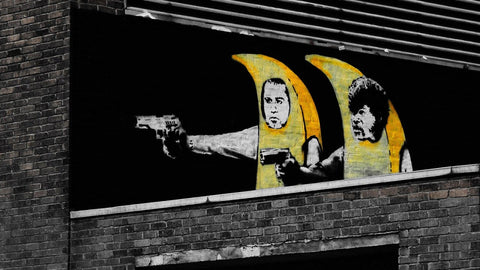
Whether intended as a comedy prop (such as with Lucy Sparrow's sidekick, Basil the Banana), or something more symbolic, insert a banana into any scenario and chances are you’ll provoke a reaction, childish or otherwise.
On the day we ‘celebrate’ National Banana Day, here are three situations when this phallic fruit has split the art world…
1 - Velvet Underground, Andy Warhol
Arguably the most famous artistic depiction is Andy Warhol’s banana, which was used as the cover art for Velvet Underground & Nico’s 1967 debut album.
The album cover featured a peelable banana with a message instructing owners of the album to ‘peel slowly and see’. Once peeled, the cover became a banana topped with sexually-charged, raw pink flesh that led lead singer, Lou Reed, to boast, ‘actually made it into an erotic art show.’
The clashing yellow and black banana is credited by the band’s label as being key to making the record one of the most influential albums of all time. The image was later repurposed by Czech dissidents in communist Europe, who used the banana as an emblem of clandestine revolution.
2 – Natalia LL
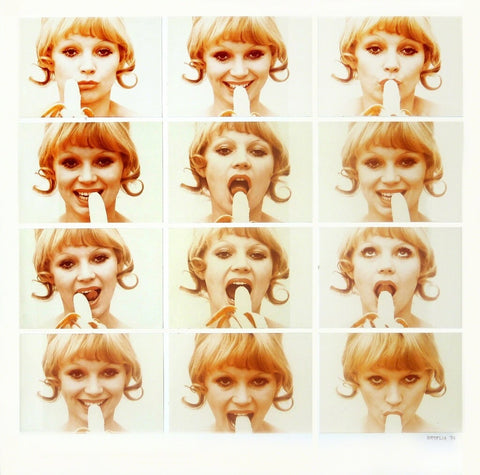
Back in 2019, the director of Warsaw Museum was reportedly summoned to the Polish Culture Ministry, and ordered to remove an artwork from 1973 amid concerns it would be ‘harmful to young people.’
The piece, entitled Consumer Art, by Natalia LL featured videos and a photo series of her eating a banana. Its removal caused outcry, with many asking why a woman should be censored for such a piece, when male artists have been creating sexually suggestive art for centuries.
In protest, over 1,000 people gathered outside the museum to hold a mass banana-eating demonstration, and many more posted photos of themselves eating bananas on social media. As a result, the piece was put back on display – for one week.
3 - Maurizio Cattelan, The Comedian
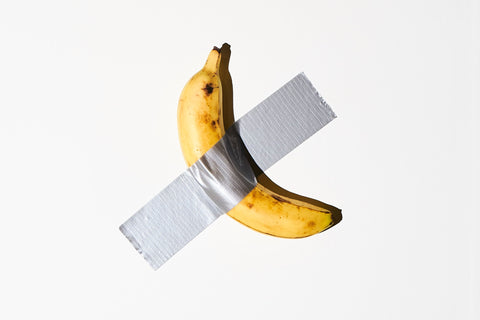
Also in 2019, the art world was perplexed when Italian artist, Maurizio Cattelan duct taped a banana to the wall at Art Basel and sold three editions of it for $120,000-$150,000 a pop. The exhibit drew such huge crowds, it soon became a health and safety risk and had to be removed a day before the fair ended following, ‘several uncontrollable crowd movements.’
The piece, named The Comedian, sparked mass debate across the world on the nature of what constitutes art – particularly after the banana was removed from the wall and scoffed by performance artist, David Datuna.
The gallery representing Cattelan explained the artwork was designed to explore, ‘how we assign worth and what kinds of objects we value.’ Debate was fraught - can something still be ‘art’ if it’s made from an item we all have in our fruit bowl, and that rarely lasts longer than a couple of weeks?
Fellow controversial artist, Damien Hirst certainly thought it was! He was reportedly so hell-bent on acquiring an edition of The Comedian that he offered to swap any of his own artworks to get his hands on it. When asked what appealed to him about the piece, Hirst responded: ‘Because after everything we’ve seen in art, it’s still shocking and upsetting and it makes me laugh.’

Of all the puns The Comedian sparked, the most obvious was whether it signified the art world had finally 'gone bananas.' In Hirst’s opinion, not as much as the real world, ‘But maybe that’s what this artwork is saying?’
If you'd like to add a banana to your art collection, check out this piece by Gavin Turk, created in response to The Comedian.

